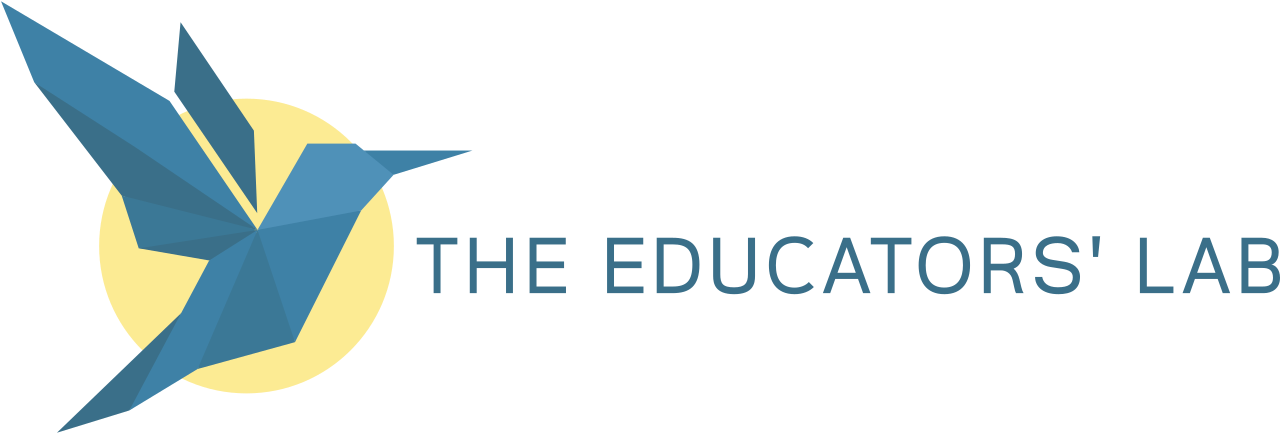Small Grants, Bold Change: How educators are leading learning around the world
What if the future of education innovation began in a teacher’s classroom?
At the Educators' Lab, we know it does because we have witnessed it first-hand. Through our Teacher Empowerment Incubator & Micro-grant Project, we’re supporting educators around the world to imagine, design, and lead place-based projects that respond to environmental and social challenges right in their communities.
The model is simple: we offer coaching, a vibrant community of practice, and up to $1,000 in micro-grants. The results, however, are anything but small.
In the pilot round of the Micro-grant Project, six educators across the globe show us how they lead bold new initiatives. Here’s a closer look at what they’re building.
🇵🇾 Paraguay: Students Leading Waste Management in the Mbaracayú Forest
Teacher: Sara Alonso
School: Centro Educativo Mbaracayú, Fundación Moisés Bertoni
In the lush Mbaracayú Forest Biosphere Reserve, improper waste disposal is polluting the landscape and threatening community health. Teacher Sara Alonso is turning this environmental challenge into an opportunity for change. With support from the micro-grant, students from the Centro Educativo Mbaracayú (CEM) are leading the charge.
Over 100 students trained their peers, parents, and community members in two indigenous communities on how to properly manage waste. The project includes student-led workshops on waste classification, recycling, and building sustainable waste systems. By the end, these students became not just educators—they were community leaders, creating a lasting impact on health, hygiene, and the environment.
🇺🇬 Uganda: Green Futures Empowering Young Climate Leaders
Teacher: Musisi Godfrey
School: Kasumba Nursery and Primary School
In Nakaseke District, Uganda, the "Green Futures" project is transforming climate education with a hands-on, student-driven approach. Teacher Musisi Godfrey led this initiative, integrating climate literacy into the school curriculum and equipping students with practical skills like agroforestry, permaculture, and waste management.
Miusisi´s students don’t just learn about climate change—they act on it. Through workshops, tree planting, and community-driven environmental initiatives, they’re becoming agents of change. The project empowers over 300 students to take leadership roles within their school and throughout their community, fostering a sense of environmental responsibility.
🇳🇬 Nigeria: Empowering Young Climate Leaders
Teacher: Sharihat Aliyu Hassan
School: KNOSK100 A Day Charity School, Kuje
Partner: Ecocykle Development Foundation
In the heart of Kuje, Abuja, the "Climate and My Community" project is shaping a new generation of climate champions. Sharihat Aliyu Hassan led an initiative aiming to ignite climate action among 50 secondary students called KNOSK100 A Day Charity School.
Through a unique two-phase approach, students first delved into climate change education using interactive tools like the Ecocukle Card game, followed by field trips and hands-on climate mini-projects in their community. These projects equipped students with the knowledge and skills to tackle local environmental challenges and become active advocates for climate change solutions.
🇲🇿 Mozambique: Regenerating Amid Crisis
Teacher: Urbano Firmino
School: Paindaine Primary School, Inhambane
Partner: Love the Oceans
In the coconut-rich coastal region of Inhambane, an invasive species, the coconut rhinoceros beetle, is devastating trees and livelihoods. But teacher Urbano Firmino and community leader Pascal Nhamussua saw an opportunity for regenerative education. With support from the micro-grant and the help of local female volunteers, they taught over 120 primary students how to compost using grubs and coconut waste, build beetle traps, and understand ecological cycles.
The students are not just learners but storytellers, too—documenting their discoveries, sharing them with families, and becoming regenerative ambassadors in their communities.
🇹🇹 Trinidad & Tobago: Greening Shared Spaces
Teacher: Wendy MacKenzie
School: Queens Royal College
Sustainability isn’t new to Queens Royal College—it’s embedded in the school’s identity as a UNESCO-affiliated institution. Teacher Wendy MacKenzie and her students are pushing it further. Their ¨Greening Shared Spaces¨ project transforms underused parts of campus into productive and educational ecosystems.
They’re building a rainwater harvesting system, launching a hydroponic vegetable garden, planting fruit trees, and installing solar lighting on the shared school field. The project also generates income by selling products to the school cafeteria, making it self-sustaining and student-run.
🇮🇪 Ireland: From Waste to Wonder
Teacher: Brian Kelleher
School: Coláiste Iósaef, Kilmallock
In Ireland, a simple worm is helping drive a circular economy at school. Science teacher Brian Kelleher and his students are expanding their “Vermicomposting Project”, which reduces food waste and generates fertilizer to enrich school gardens.
The micro-grant helped them build new worm nurseries, purchase red worms, and create a waste sorting system that brings the entire school community into the fold. Students with diverse learning needs help with nursery construction, gain confidence, and hands-on experience. Their project, The Worm Academy, won the EU Conexus “Think Smart Think Green” Competition and will represent Ireland in the international final. Students also won the Eco-UNESCO Young Environmentalist Award in the Junior Food category.
One Model, Many Futures
Together, these six projects reveal what’s possible when we trust educators as catalysts for change. Though their approaches are different, they are all part of a shared vision: learning that is rooted, relevant, and sustainable.
These aren’t one-off lessons or top-down interventions. This is what innovation looks like. It starts with listening. It grows through collaboration. And it always leads back to the power of a teacher and the impact of their students´ learning in their communities.
They’re grassroots innovations—teacher-led, youth-driven, and deeply grounded in local contexts. They transform schools into community hubs of sustainable practice, where students become leaders, researchers, makers, farmers, storytellers, and systems thinkers.
The Micro-grant Project is not just about funding—it’s about freeing educators to dream.
Follow our work at Educators’ Lab as we continue to nurture bold ideas and brilliant educators. Because real change starts small—and grows wide.
